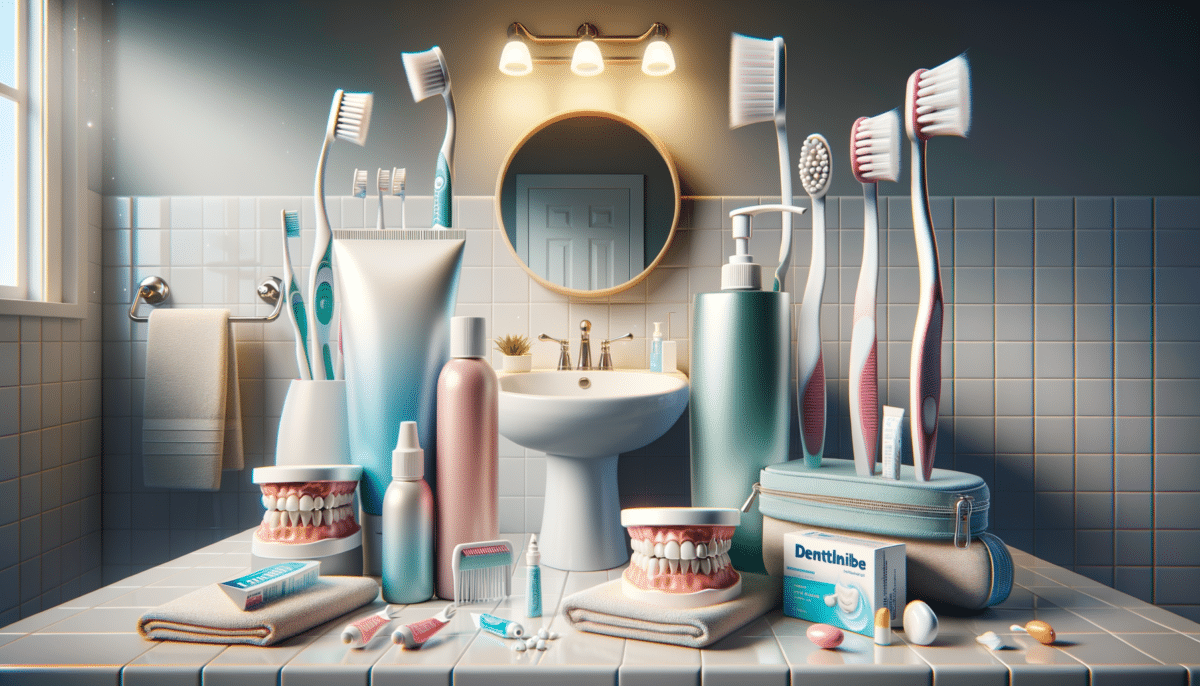Understanding the Basics of Dental Hygiene
Dental hygiene is the cornerstone of oral health, influencing not just your teeth but your overall well-being. At its core, dental hygiene involves the regular practice of keeping your mouth clean to prevent dental issues such as cavities, gum disease, and bad breath. The basics include brushing your teeth at least twice a day with fluoride toothpaste, flossing daily to remove plaque between teeth, and using mouthwash to eliminate bacteria that brushing might miss.
Brushing should be done with a soft-bristled toothbrush, as hard bristles can wear down enamel and irritate gums. It’s recommended to replace your toothbrush every three to four months or sooner if the bristles are frayed. Flossing is equally important as it reaches the 40% of tooth surfaces that brushing alone cannot clean. It helps in preventing gum disease and cavities in areas that are hard to reach.
Mouthwash can be a beneficial addition to your routine. It helps in reducing the acid in the mouth, cleaning hard-to-brush areas, and re-mineralizing teeth. However, it should not replace brushing and flossing. Regular visits to the dentist for professional cleaning and check-ups are also crucial, as they can help detect potential issues early and keep your oral health on track.
The Importance of Diet in Dental Health
Your diet plays a significant role in maintaining oral health. Consuming a balanced diet rich in vitamins and minerals is essential for healthy teeth and gums. Foods high in calcium, such as dairy products, leafy greens, and almonds, help in strengthening tooth enamel. Phosphorus-rich foods like meat, eggs, and fish are also beneficial as they support calcium in building strong teeth.
On the other hand, sugary and acidic foods can be detrimental to dental health. Sugars from foods and drinks interact with bacteria in the mouth to form acid, which can erode enamel and lead to cavities. It’s advisable to limit the intake of sugary snacks and beverages and to rinse your mouth with water after consuming them to reduce acid levels.
Incorporating crunchy fruits and vegetables like apples, carrots, and celery can also be beneficial. These foods help in cleaning teeth surfaces and stimulating saliva production, which naturally cleanses the mouth. Additionally, staying hydrated is vital as water helps in washing away food particles and bacteria, maintaining a healthy balance in the mouth.
Recognizing and Preventing Common Dental Problems
Understanding common dental issues and how to prevent them can save you from discomfort and costly treatments. Cavities, gum disease, and bad breath are some of the most prevalent dental problems. Cavities, or tooth decay, occur when plaque builds up on teeth and produces acid that erodes enamel. Regular brushing, flossing, and limiting sugar intake are effective ways to prevent cavities.
Gum disease, or periodontal disease, is an infection of the tissues that hold your teeth in place. It’s primarily caused by poor brushing and flossing habits that allow plaque to build up on teeth and harden. Early-stage gum disease, known as gingivitis, can often be reversed with good oral hygiene and regular dental cleanings. However, advanced gum disease may require more intensive treatments.
Bad breath, or halitosis, can result from poor dental habits, certain foods, or health problems. Brushing and flossing regularly, cleaning your tongue, and staying hydrated can help prevent bad breath. If persistent, it may indicate a more serious condition, and consulting a dentist is recommended.
The Role of Regular Dental Check-Ups
Regular dental check-ups are crucial for maintaining oral health and preventing dental problems. These visits allow your dentist to monitor your oral health and catch any issues early before they become more serious. A typical dental check-up includes a professional cleaning, examination, and sometimes X-rays.
During the cleaning, dental hygienists remove plaque and tartar that regular brushing and flossing can’t reach. This process helps in preventing cavities and gum disease. The examination involves checking for cavities, gum disease, and other potential issues. X-rays may be used to get a closer look at your teeth and jawbone, helping to identify problems not visible to the naked eye.
Regular check-ups also provide an opportunity for your dentist to offer personalized advice on improving your oral care routine. They can recommend products, techniques, and lifestyle changes to enhance your oral health. It’s generally recommended to visit the dentist every six months, but your dentist may suggest a different frequency based on your individual needs.
Innovations in Dental Care Technology
Advancements in dental technology have revolutionized the way we approach dental care, making procedures more efficient and less invasive. Digital X-rays, for instance, have become a staple in dental practices. They emit significantly less radiation than traditional X-rays and provide instant images that dentists can enhance for better diagnosis.
Laser dentistry is another innovation that offers precision in procedures such as cavity treatment, gum reshaping, and teeth whitening. Lasers reduce pain, minimize bleeding, and speed up recovery times, making them a preferred choice for many patients.
3D printing technology is also making waves in dentistry. It allows for the creation of customized dental implants, crowns, and bridges with high precision. This technology not only enhances the fit and comfort of dental prosthetics but also reduces the time needed for production.
Furthermore, the introduction of AI in dentistry is transforming diagnostics and treatment planning. AI algorithms can analyze dental images to detect issues with high accuracy, assisting dentists in making informed decisions. These innovations are making dental care more accessible, efficient, and comfortable for patients worldwide.
